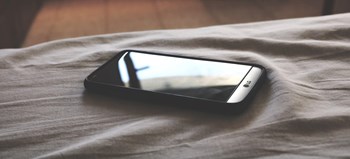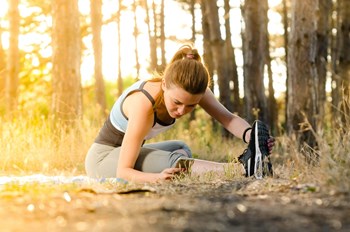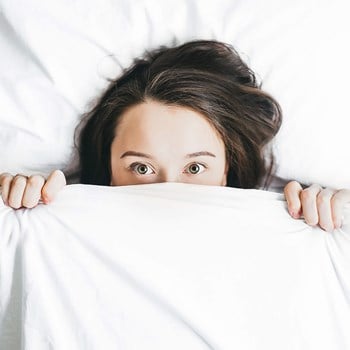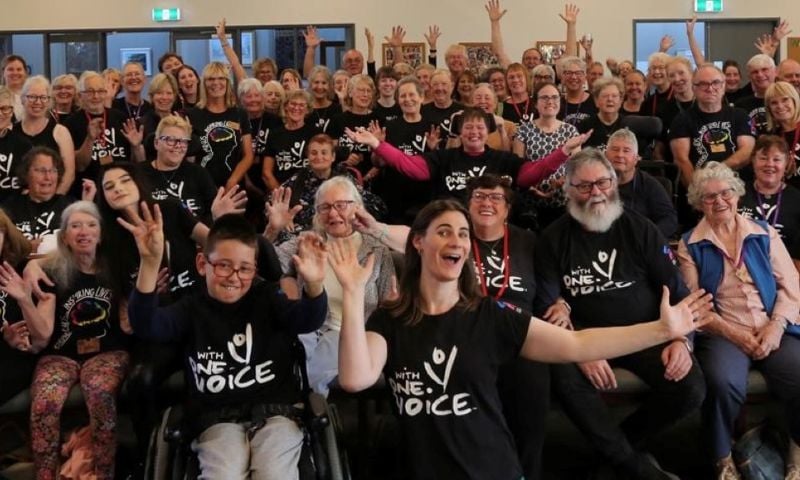The older we get, the more we appreciate a good night’s sleep. For some of us, if we had the opportunity, we would sleep all night and take a nap every day. But the harsh reality is that it’s not always easy to get a good sleep. In fact, at least one-third of the adult population regularly suffers from significant sleep problems.
While sleep can be a frustrating endeavour, it doesn’t have to be. In fact, a good night’s sleep is more achievable than you think.
Phone off
You’ve probably heard that using your phone before bed hinders your sleep. And, you’ve probably ignored this advice because of your relentless fear of missing out. However, a study by Harvard researchers has found that there may unfortunately be some truth to this.
 The blue light from our screens interferes with the brain’s production of melatonin, the chemical that helps us rest. This can result in us having less energy day to day or random mood swings. But on the more serious end of the spectrum, disturbing our sleep cycles can impact our mental health, greatly increasing our risk of developing conditions like anxiety or depression.
The blue light from our screens interferes with the brain’s production of melatonin, the chemical that helps us rest. This can result in us having less energy day to day or random mood swings. But on the more serious end of the spectrum, disturbing our sleep cycles can impact our mental health, greatly increasing our risk of developing conditions like anxiety or depression.
If you struggle to keep your devices out of the bedroom, there are three useful steps you can take to improve your sleep:
- Dim the screen brightness as far as possible.
- On e-readers, reverse the settings to be white text on a black background.
- Download an app for your phone, or software for your laptop, that reduces the blue screen emitted by your screens.
That said, the best way to improve your sleep is to go completely device-free before bed. It may be hard, but the results are undeniable.
No caffeine after lunch
For coffee and chocolate addicts, this one might be hard to stomach. And while it’s not surprising that caffeine is a stimulant that keeps us up, most people don’t know that it can cause sleep problems 10-12 hours after consuming it.
If you are searching for a hot drink substitute in the afternoon, why not reach for a black or herbal tea, these contain three times less caffeine than coffee.
Consistency is key
Keeping a regular sleep schedule will help regulate your body clock, making it easier to fall asleep and stay asleep throughout the night. This means going to bed and waking up at around the same time every day – even on weekends.
Daytime naps can help fill the void of an early weekend wake up. However, be sure to keep these naps to around 20-30 minutes as this will significantly improve alertness and performance without leaving you feeling worse than you did before.
Pre-bed cuisine
It’s never a good idea to go to bed hungry. But when it comes to snacking before bed time, there are some foods that are better than others to help promote better sleep quality and duration.
Nutritionist Sophie Butcher, Founder of Food Talks Nutrition, says that there are a bunch of foods that wreak havoc on your sleep-wake cycle. These are mostly foods that are energy-dense and nutrient poor, which often contain high amounts of sugar, unhealthy fats and salt.
“It is important to skip snacks like lollies, chocolate, biscuits, baked foods, refined cereals, white bread and cake before bed and opt for other sleep promoting foods,” says Sophie.
The good news though is that there are plenty of delicious foods that promote better sleep quality and duration.
“A handful of nuts, particularly raw unsalted walnuts and almonds, contain melatonin that can help regulate your sleep-wake cycle and also maintain your blood sugar and cortisol levels for a good night sleep.
Milk contains tryptophan and melatonin that are important nutrients for promoting sleep. Foods containing complex carbohydrates such as brown rice, oats, barley and other wholegrains are also great choices.”
 Exercise
Exercise
Exercise and sleep go hand in hand when it comes to our health. Sleeping is essential to muscle growth and fat burning, while exercise is essential to getting productive shut-eye.
The best type of exercise for improved sleep is aerobic, and it should be vigorous. Dynamic and heart pumping exercise is what helps us spend more time in deep sleep, the essential, rejuvenating sleep that helps us wake up ready for the day.
If you’re exercising in the evening, make sure it’s wrapped up at least two hours before hitting the hay.
Winding Down
Something people struggle with most when it comes to getting a productive sleep is being able to wind down. Many people find that as soon as they get into bed, their brain starts buzzing.
If you’re one of those people who find it hard to ‘switch off’ when it’s time to go to sleep, try practicing relaxation techniques.
 Deep breathing, progressive muscle relaxation (tensing and relaxing your muscles as tightly as you can from your toes to the top of your head), and visualising a peaceful place are all types of relaxation techniques that can help make it easier to fall asleep.
Deep breathing, progressive muscle relaxation (tensing and relaxing your muscles as tightly as you can from your toes to the top of your head), and visualising a peaceful place are all types of relaxation techniques that can help make it easier to fall asleep.
As far as what not to do, it’s best to avoid overstimulating your brain too soon before bed, with activities such as working, watching a horror movie or checking social media. Time management is also important when it comes to counteracting stress and anxiety, so ensure you make time for yourself to wind down between your last activity of the night and getting into bed.
Occasional sleepless nights are relatively common, but ultimately, sleep needn’t be something we struggle with. In fact, it should be the opposite. So utilise these tips to make sleep a priority and start getting a better night’s rest.



